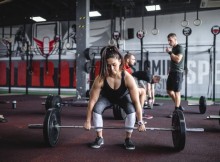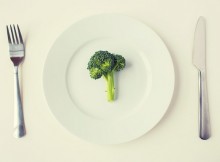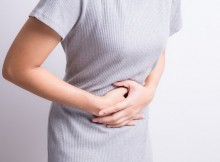Weight Lifting Protein Shakes & Muscle Cramps
Advertisements
When you follow the weekly weight lifting procedure, it's likely that at some point you will feel irritating or even painful muscle cramps. Cramps, also known as muscle spasms, are uncontrollable contractions of muscle fibers. These fires are common after strenuous exercise and indicate a problem with the regulatory system that controls the muscles. Although muscle cramps inhibit optimal performance, most cramps are harmless and easy to treat.
Advertisements
 muscle cramps can cause pain and distraction during and after exercise. Many factors, such as hydration and electrolytes, can cause cramps, and one of the most common causes related to weight lifting is dehydration. Sweating too much, especially in hot weather, or without proper diet and hydration, consumes the water and electrolytes your muscles need to store energy, especially sodium, potassium, magnesium and calcium. If you lose too much liquid and salt, you will not only have lower performance and more fatigue, but also the ions that regulate your contractions in your nerves will also be destroyed, and the possibility of cramp will be greater. It is very important to drink water in high-intensity sports such as weightlifting or aerobic training, especially sports drinks containing carbohydrates and electrolytes. But before and after exercise, it's also important to find the right thing in your body. Fortunately, it's easy to combine these needs with a protein shake before or after exercise. If you add sodium, you can sprinkle 1 / 2 teaspoon of salt in the smoothie. Dark green leafy vegetables such as spinach and kale are easy to mix, adding magnesium and calcium, while bananas give you Potassium and flavor. However, although hydration and electrolytes play an important role in muscle regulation, they may not be the most common cause of muscle spasm. If during or after lifting, your hardest working muscles have spasms, such as the thighs after squatting, the most likely cause is fatigue. When you are tired, your muscle reflex control will weaken, causing muscles to twitch and spasm during exercise. Even in recovery, exhausted muscles are more prone to cramps because, contrary to intuition, your muscles need energy to relax. One of the easiest ways to prevent muscle cramps is to avoid overtraining. A break of at least 48 hours between your weightlifting workouts will help avoid dehydration and fatigue. When you feel cramps, try to gently stretch the muscles, which send signals to your brain and regulating nerves to relax. In rare cases, muscle spasms can be a sign of metabolic or neurological disorders. If they persist or become excessive, seek advice from a healthcare professional. If you have frequent leg muscle cramps with shortness of breath, seek medical attention immediately.
muscle cramps can cause pain and distraction during and after exercise. Many factors, such as hydration and electrolytes, can cause cramps, and one of the most common causes related to weight lifting is dehydration. Sweating too much, especially in hot weather, or without proper diet and hydration, consumes the water and electrolytes your muscles need to store energy, especially sodium, potassium, magnesium and calcium. If you lose too much liquid and salt, you will not only have lower performance and more fatigue, but also the ions that regulate your contractions in your nerves will also be destroyed, and the possibility of cramp will be greater. It is very important to drink water in high-intensity sports such as weightlifting or aerobic training, especially sports drinks containing carbohydrates and electrolytes. But before and after exercise, it's also important to find the right thing in your body. Fortunately, it's easy to combine these needs with a protein shake before or after exercise. If you add sodium, you can sprinkle 1 / 2 teaspoon of salt in the smoothie. Dark green leafy vegetables such as spinach and kale are easy to mix, adding magnesium and calcium, while bananas give you Potassium and flavor. However, although hydration and electrolytes play an important role in muscle regulation, they may not be the most common cause of muscle spasm. If during or after lifting, your hardest working muscles have spasms, such as the thighs after squatting, the most likely cause is fatigue. When you are tired, your muscle reflex control will weaken, causing muscles to twitch and spasm during exercise. Even in recovery, exhausted muscles are more prone to cramps because, contrary to intuition, your muscles need energy to relax. One of the easiest ways to prevent muscle cramps is to avoid overtraining. A break of at least 48 hours between your weightlifting workouts will help avoid dehydration and fatigue. When you feel cramps, try to gently stretch the muscles, which send signals to your brain and regulating nerves to relax. In rare cases, muscle spasms can be a sign of metabolic or neurological disorders. If they persist or become excessive, seek advice from a healthcare professional. If you have frequent leg muscle cramps with shortness of breath, seek medical attention immediately.




